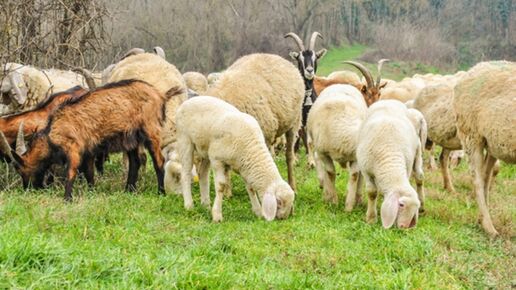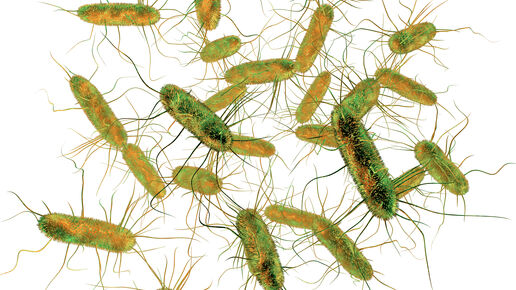
News
EFSA advises on risk assessment of engineered gene drives
EFSA’s existing guidelines for the risk assessment of genetically modified animals are adequate for evaluating risks associated with gene drive modified insects. However, further guidance is needed...

News
SARS-Cov-2 variants in mink: rapid assessment published
EFSA’s animal health specialists have contributed to a rapid assessment of the risks to human health from the new SARS-CoV-2 variants related to mink. The assessment, published today by the European...

News
Rift Valley fever: surveillance measures assessed
EFSA has completed its series of assessments on Rift Valley fever (RVF) with a scientific opinion looking at the effectiveness of surveillance and control measures in the EU . The latest opinion...

News
Slaughter of cattle: welfare issues assessed
EFSA has published an assessment of the welfare of cattle at slaughter, based on the most up-to-date scientific studies and research. The scientific opinion is the latest in a series on the welfare of...

News
Avian influenza: EU on alert for new outbreaks
Around 1,000 detections of highly pathogenic avian influenza (HPAI) were reported in 25 EU/EEA countries and the UK between 8 December 2020 and 23 February 2021, according to the latest overview of...

News
PFAS in food: EFSA assesses risks and sets tolerable intake
EFSA has set a new safety threshold for the main perfluoroalkyl substances, or PFAS, that accumulate in the body. The threshold – a group tolerable weekly intake (TWI) of 4.4 nanograms per kilogram of...

News
EFSA launches ‘Stop African swine fever’ campaign in south-east Europe
EFSA has begun a major campaign to raise awareness and help halt the spread of African swine fever in south-east Europe. The campaign is aimed at countries that in 2019 EFSA identified as collectively...

News
Glycoalkaloids in potatoes: public health risks assessed
EFSA has assessed the risks to human and animal health related to the presence of glycoalkaloids in food and feed, particularly in potatoes and products derived from potatoes. Glycoalkaloids are...

News
Pesticides and bees: evidence on mortality rates reviewed
EFSA has completed a comprehensive analysis of the available scientific evidence on bee mortality, as part of its ongoing review of the guidance for assessing risks to bees from pesticides. The report...

News
Parma Summer School 2020 ‘One Health’: a virtual experience
The 2020 edition of the Parma Summer School, organised by EFSA and the School of Advanced Studies on Food and Nutrition of the University of Parma, in collaboration with the Catholic University Sacro...

News
Pigs at slaughter: measures to address welfare concerns
Most of the hazards related to welfare of pigs at slaughter are due to inadequate staff skills and poorly designed and constructed facilities. That is one of the main conclusions of EFSA’s latest...

News
‘Food safety is everyone’s business, now and in the future’ – celebrating World Food Safety Day 2020
“Food safety is EFSA’s daily job, but it’s everyone’s business to consider food safety now and in the future if we want to limit the impact of climate change and to build sustainable global food...

News
Ochratoxin A in food: public health risks assessed
EFSA has published a scientific opinion on public health risks related to the presence of ochratoxin A (OTA) in food – a mycotoxin naturally produced by moulds that can be found in a variety of...
News
Cumulative risk assessment of pesticides: FAQ
Why is EFSA working on cumulative risk assessment? Risks to consumers from the presence of pesticide residues in food are currently estimated substance by substance. However, a number of pesticides...

News
Pesticides: first cumulative risk reports published
EFSA has published the results of its two pilot assessments on the risks posed to humans by residues of multiple pesticides in food. The assessments – one considering chronic effects on the thyroid...

News
Xylella: 37 new plant species added to host list
Thirty-seven new plant species have been identified as hosts of the Xylella fastidiosa pathogen. Most were naturally (not artificially) infected and were found both in EU countries (France, Italy...

Data visualization
News
Protecting Europe’s plants: pest survey cards go digital
The first batch of EFSA’s plant pest survey cards are now available in an easy-to-use interactive format. Ten of the existing 28 cards – which are designed to help EU Member States plan their annual...

News
Listeria in frozen vegetables: how to reduce risks
EFSA has assessed the risks to public health from Listeria contamination of vegetables that are blanched – scalded in hot water or steam for a short time – before they are frozen. They conclude that...

Data visualization
Foodborne outbreaks caused by Salmonella in 2018
EFSA dashboards are an interactive way of providing scientific information on EFSA topics. Click here to check out the latest data on foodborne outbreaks caused by Salmonella in 2018.

News
Pesticide residues in food: track trends with our browsable charts
EFSA has published its annual report on pesticide residues found in food in the European Union. The report is based on data from the official national control activities carried out by EU Member...

Data visualization
The 2018 European Union Report on pesticide residues - the EU-coordinated programme results
EFSA dashboards are an interactive way of providing scientific information on EFSA topics. Click here to check out the latest data on pesticide residues in 2018.















